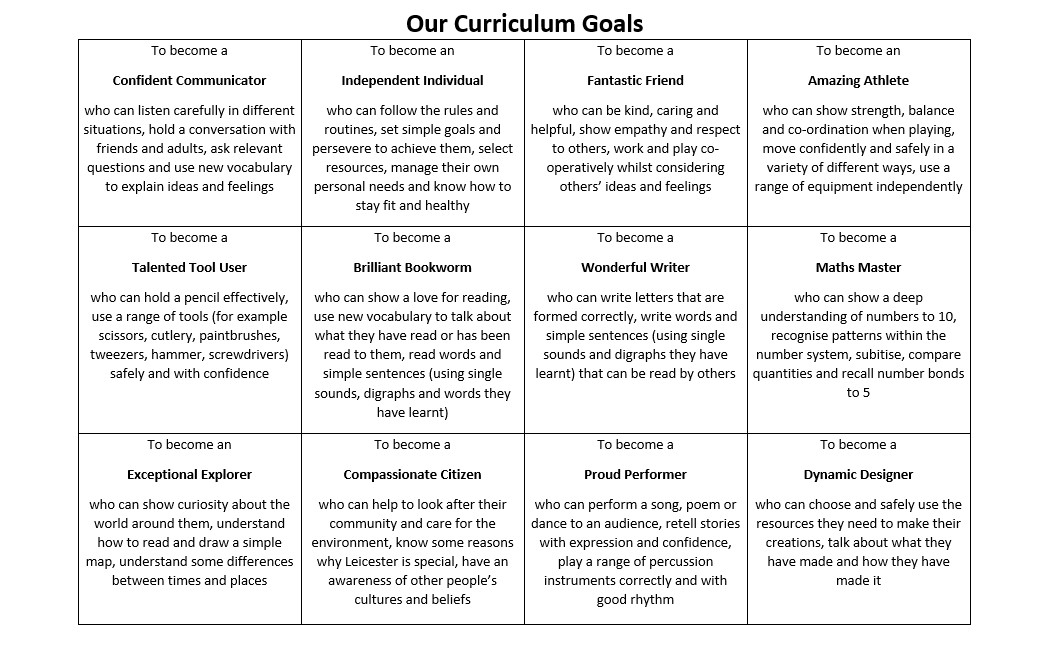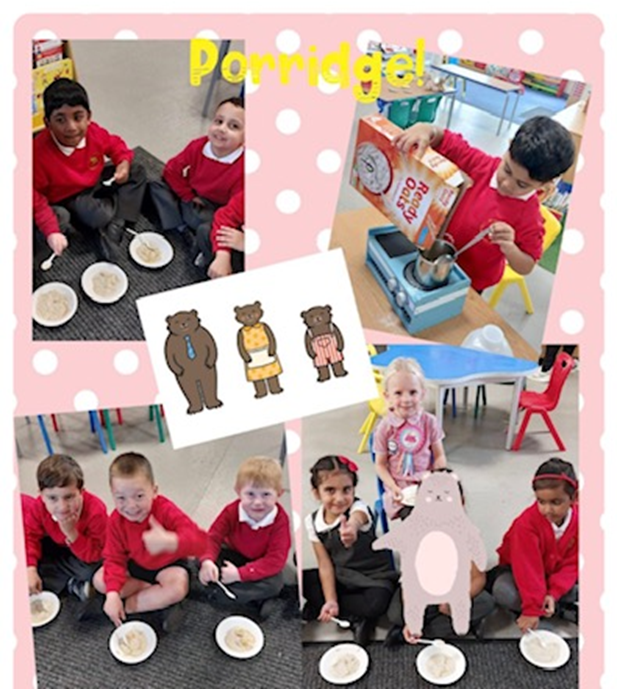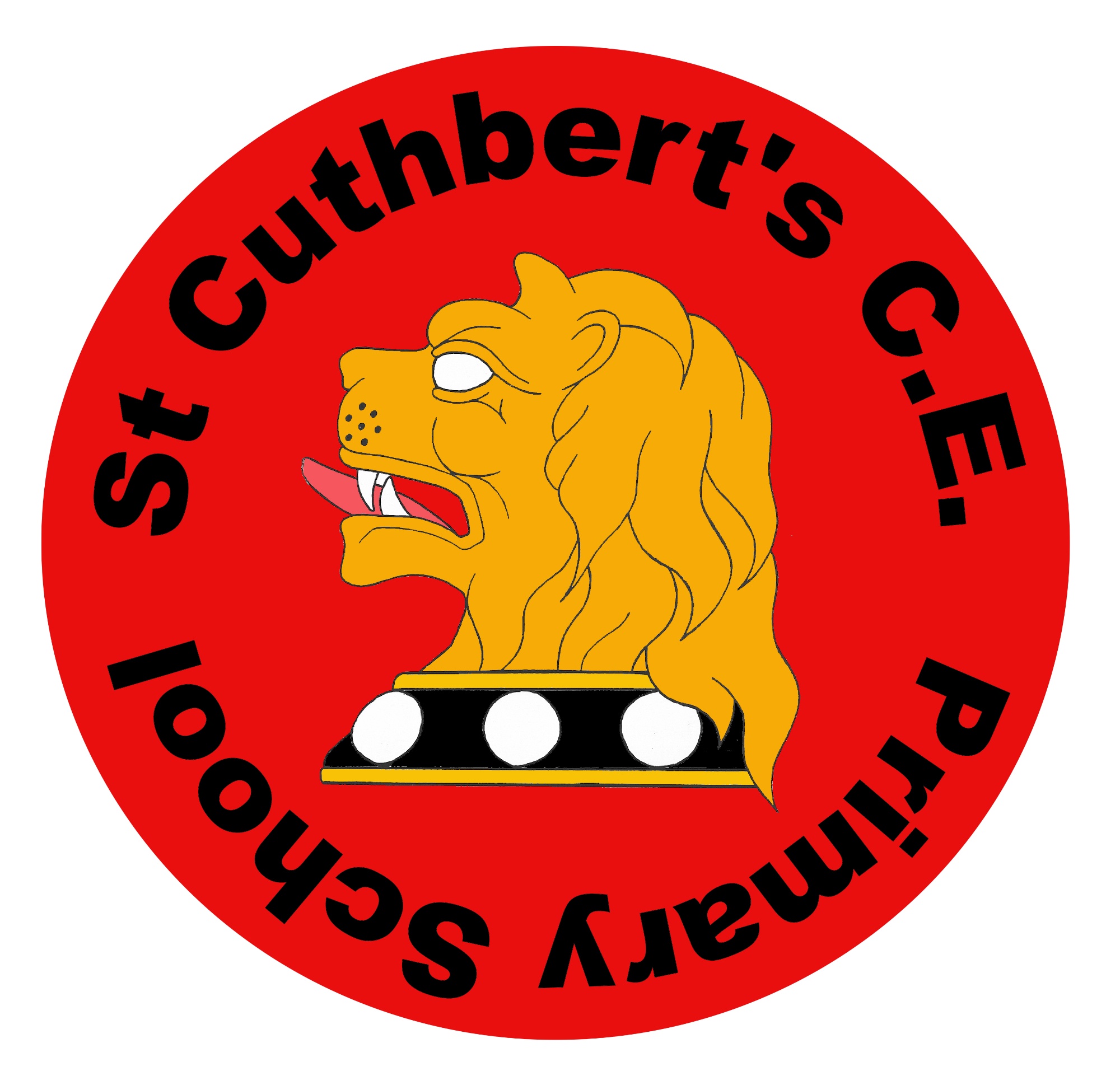EYFS
The Early Years Foundation Stage (EYFS) applies to children from birth to the end of the Reception year. The EYFS is based upon four principles;
1. A Unique Child
2. Positive Relationships
3. Enabling Environments
4. Learning and Development
AREAS OF LEARNING
The Early Years Foundation Stage is a curriculum from birth to five years old, we follow the strands set by this curriculum and concentrate the learning opportunities on the seven areas of learning (3 Prime and 4 Specific) which are;
PRIME AREAS
PERSONAL, SOCIAL AND EMOTIONAL DEVELOPMENT
PHYSICAL DEVELOPMENT
COMMUNICATION and LANGUAGE
SPECIFIC AREAS
LITERACY
MATHEMATICS
UNDERSTANDING THE WORLD
EXPRESSIVE ARTS and DESIGN

Intent
At St Cuthbert’s Primary School we offer a curriculum rich in wonder and memorable experiences. We work hard to provide a stimulating environment that provides exciting opportunities, promotes challenge, exploration, adventure and a real love of learning. It is our intent that all children develop physically, verbally, cognitively and emotionally in an environment which values all cultures, communities and people.
We aim for our children to be confident and independent, to believe in themselves and interact positively with others.
We understand that play is an integral part of learning and this is at the heart of our early year’s curriculum. We believe that the correct mix of adult directed and uninterrupted child initiated play ensures the best outcomes for pupils.
Warm and positive relationships between staff and children, consistent routines and strong relationships with parents are key. We recognise the crucial role that early year’s education has to play in providing firm foundations upon which the rest of a child’s education is successfully based.

Implementation
At St Cuthbert’s Primary School we meet the welfare requirements laid down in the Statutory Framework for the Early Years Foundation Stage and actively safeguard and promote the welfare of all of our children.
We prioritise creating a ‘language rich’ environment through the use of songs, nursery rhymes, stories and providing time for quality interactions between adults and between peers. Trained staff ensure that interactions are positive and progressive, allowing children to flourish and gather words at pace in order to become confident communicators. Children are encouraged to become early readers through enjoyment of books and the systematic teaching of phonics. The children learn nursery rhymes and develop their mathematical thinking through direct teaching and exploration. We want our children to become confident mathematicians who can apply what they have learnt to real life experiences.
We have built our school environment to enable our children to strengthen their core muscles through physical play; children spend time outdoors in their natural environment in all weathers. They develop through wonderful, exploratory, sensory experiences in our mud kitchen, secret garden and well-resourced outdoor area. Our learning environment is adaptable in order to reflect children's interests and progression. The children are supported to learn to work together, manage their feelings and ask questions through skilled adult facilitated play. In early years our environment and all our interactions and routines are intentional. The curriculum is taught through topics which are enriched with classroom enhancements, trips and visitors. Topics are supported by quality key texts. These are chosen carefully to encourage children's speech, language and communication development. All planning however, is flexible and responsive to children’s needs, so plans can be changed and adapted dependent on children’s interests.
We understand the importance of parental engagement and believe that our parents have a crucial role to play in their children's education. We work hard to create strong partnerships between home and school. Parents receive knowledge organisers to inform them of what their child is learning each half-term and to explain how they can support this at home. Parents enjoy contributing to their child’s Learning Journey play sessions and our weekly fine motor and reading café are consistently well attended.
As part of the learning and teaching process, children are assessed in relation to their progress towards Development Matters and the Early Learning Goals. These judgements are made on the basis of accumulative observations and in-depth knowledge of the children acquired through ongoing assessment. These ongoing assessments are used to inform planning and next steps in teaching and learning for all children throughout the year.
Impact
Our curriculum and its delivery ensure that children, from their own starting points make good progress. During their time with us children make rapid progress towards the national expectation for a good level of development at the end of the year. Pupils also make good progress towards their age-related expectations both academically and socially, developing a sense of themselves before transitioning into Year One.
Children develop their characteristics of learning and are able to apply their knowledge to a range of situations making links and explaining their ideas and understanding. Children are confident to take risks and discuss their successes and failures with peers and adults drawing on their experiences to improve or adjust what they are doing.
We believe our high standards are due to our carefully planned environment, enriched play-based curriculum, quality first teaching and the rigour of assessment.
Our curriculum is reviewed annually to ensure relevance and to ensure the voices of our pupils, parents, staff and governors are heard.
